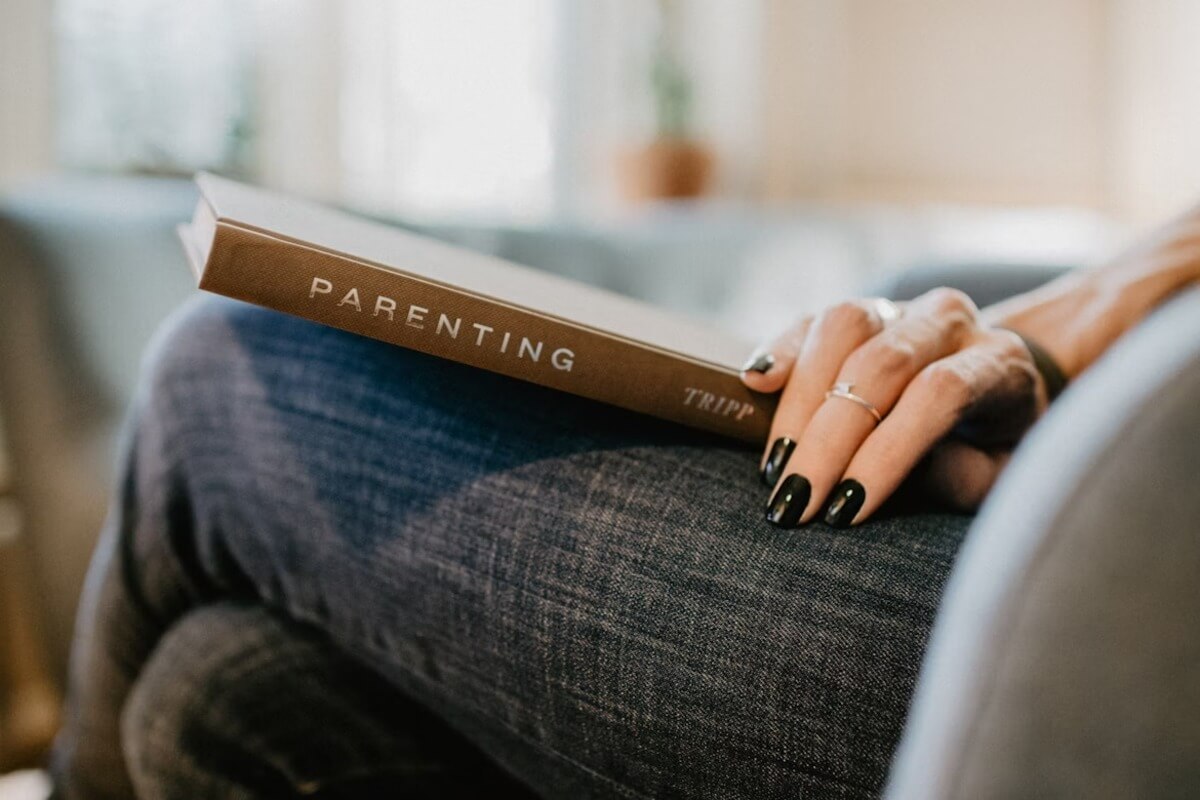A few weeks ago, I sat in the school auditorium watching my daughter raise her hand to answer a tough question the teacher had asked. The room was full of classmates and parents, and without hesitation she stood, spoke clearly, and gave her answer. I was stunned. At her age, I would have avoided eye contact and prayed the teacher never called on me.
That moment left me asking myself: How did my child get so brave when I wasn’t at her age? It wasn’t just about knowing the answer—it was the calmness, the steady voice, the way she believed in herself.
The truth is, confidence doesn’t appear out of thin air. Confident kids aren’t simply “born that way.” It’s something built piece by piece through the way we raise them. The small choices parents make each day—what we say, what we model, and how we guide them—add up to a strong sense of self.
Confidence works a lot like a three-legged stool. Kids need balance in three areas: physical strength, mental growth, and emotional support. When these parts come together, they have a steady foundation that helps them stand tall in life.
Physical Confidence: Strong Bodies, Strong Minds
Encourage Active Play and Sports
One of the best ways to build confidence in kids is through movement. Running, climbing, and playing games teach them more than just fitness — they learn teamwork, problem-solving, and how to keep going when things get tough.
Research shows that children involved in sports often have better self-esteem and stronger social skills. They gain friends, learn discipline, and feel proud when they reach small milestones.
Think about a child who tries out for a soccer team. Even if they don’t score the winning goal, being part of the team helps them feel valued. Active play, whether on a playground or in a league, gives kids the chance to practice skills that lead to confident kids later in life.
Celebrate Effort Over Winning
Parents sometimes focus too much on the score, but kids learn the most when effort is celebrated. Confidence grows when children hear: “I love how hard you worked on that,” instead of only hearing praise for victories.
Losses and mistakes happen in every sport or activity. What matters is showing children that setbacks are not failures, but stepping stones. When kids see that trying again is more important than being perfect, they bounce back faster and keep improving.
Over time, this mindset creates resilient, confident kids who don’t quit at the first sign of struggle. They understand success is built step by step.
Find “Their Thing”
Not every child enjoys traditional team sports, and that’s okay. Some kids shine in swimming, martial arts, or dance. Others may love hiking, biking, or even yoga. The goal isn’t to push them into the most popular activity but to help them find something they genuinely enjoy.
Confidence comes from consistency and joy, not pressure. A child who loves karate and sticks with it will feel more proud and capable than one forced into basketball they dislike.
Parents can offer different options, watch what sparks excitement, and then support that choice. When kids find their own thing, it helps them grow into confident kids with a strong sense of self.
Mental Confidence: Expanding Curiosity and Skills
Support Interests That Challenge the Mind
Kids gain mental strength when they’re encouraged to try activities that make them think in new ways. Music, chess, robotics, theater, or coding all stretch problem-solving skills while helping children learn discipline and patience.
These hobbies also teach kids how to focus on small steps and enjoy progress along the way. For example, a child practicing guitar may struggle with a chord for weeks, but when they finally master it, their sense of pride is unmatched.
Supporting these interests builds more than knowledge — it builds confidence. Parents don’t have to choose the activity for them; they only need to support the child’s curiosity and give them room to grow.
Let Kids Explore Without Pressure
Confidence often grows strongest when children feel free to explore without fear of judgment. Hobbies that start as “just for fun” often become strengths later.
Maybe your child likes to paint silly cartoons, or build towers with blocks, or write short stories. When they’re given the freedom to enjoy these hobbies without pressure to perform, they learn self-expression and independence.
Sometimes the activities parents least expect turn into real skills. A child drawing for fun could later grow into an artist. Giving them space to explore teaches them that their interests matter and helps shape confident kids who believe in their own ideas.
Guide Smart Screen and Learning Time
Screens can be tricky, but when used wisely they can boost confidence instead of harm it. Some video games build strategy, problem-solving, and creativity. Educational apps or coding games help kids sharpen skills in fun ways.
Parents can set limits while still encouraging healthy screen use. Ask what your child is learning from a game, and keep an eye on balance between online and offline activities.
For other options, check local libraries, after-school clubs, or community centers. These places often offer programs in art, robotics, or music. When kids see themselves getting better at something they enjoy — digital or not — it gives them confidence to keep pushing forward.
Emotional Confidence: Safe Hearts Build Strong Voices
Model Positive Emotional Expression
Children learn how to handle feelings by watching the adults around them. When parents calmly talk through frustration or sadness, kids see that it’s okay to name emotions instead of hiding them.
Teaching children to say, “I feel upset,” instead of acting out, helps them gain self-control. Over time, this skill reduces peer pressure and bullying because kids know how to speak up for themselves.
It also encourages empathy. A child who understands their own emotions is more likely to respect the emotions of others. This emotional balance is one of the most powerful steps in raising confident kids who trust both their voice and their heart.
Create a Safe, Loving Environment
Confidence starts with security. When kids know they are loved no matter what, they feel safe enough to take chances and try new things.
Parents can show this in simple ways:
- Keeping routines steady
- Listening without judgment
- Giving hugs, attention, and reassurance
Even small actions like keeping promises or following through with family traditions tell a child: “You can trust me.” That trust is the foundation that allows them to take risks, try out new skills, and speak up for themselves. Confident kids don’t grow from perfection — they grow from love and support.
Encourage Empathy and Respect
True confidence isn’t just about self-belief — it’s about how kids treat others. Schools and community programs often run character-building lessons that focus on kindness, gratitude, and fairness. Parents can build on this at home.
Simple habits like saying thank you, respecting differences, and sharing responsibilities give children a sense of responsibility toward others. It also shows them that confidence includes caring for people, not just standing out on their own.
Over time, empathy makes kids stronger. They’re better equipped to face challenges, handle conflict, and build positive friendships. Teaching respect and kindness lays the groundwork for confident kids who lead with strength and compassion.
The Parent’s Secret Weapon
Many parents wonder: “How can I raise a confident child when I struggle with confidence myself?” The answer is surprisingly simple — let your kids see you learn.
Children don’t expect perfect parents. They learn just as much from watching how you face fears as from what you teach them. If you struggle with public speaking, cooking, or even riding a bike, trying again in front of your child shows them what courage looks like.
Take the example of a parent who once hated speaking in front of others. By joining a small community group or workplace meeting, they worked on it little by little. Over time, their child watched the fear turn into skill.
That journey becomes a model. Kids realize confidence doesn’t mean never being afraid — it means pushing through and growing stronger. When they see you stretch yourself, it gives them permission to do the same.
The Two-Minute Action Plan for Parents
Quick moves that help right away:
- Talk with your kids daily — ask about their day.
- Help them name their feelings and talk about them.
- Mark small wins like finishing homework or learning a new skill.
- Celebrate effort with kind words, not just results.
- Be encouraging and use positive reinforcement often.
These simple steps, repeated daily, build trust and strength. Children learn that their progress matters more than perfection. Over time, these habits create a strong foundation that naturally leads to confident kids.
The Long-Term Action Plan for Parents
Confidence takes time to grow, but steady steps make a big difference:
- Keep modeling growth. Let kids watch you work on your own goals.
- Practice patience. Each child develops at their own pace.
- Avoid confidence-killers like harsh criticism, constant comparisons, or overprotection.
- Balance the three “legs” — physical, mental, and emotional support.
Parents who commit to this long-term approach raise kids who trust themselves and feel safe taking on challenges. These children are more likely to become adults who can handle life with strength, resilience, and kindness.
Final Thoughts: Step by Step, Confidence Grows
Confidence isn’t built in one day or through one big moment. It’s created in the small, daily moves that parents make — praising effort, showing love, and encouraging curiosity.
Children who grow up with this support develop steady self-belief. They learn that it’s okay to fail, try again, and grow stronger with each attempt.
Step by step, these choices shape confident kids who later become confident adults. And that’s the goal: raising children who can stand tall, face challenges with courage, and believe in their own potential.















